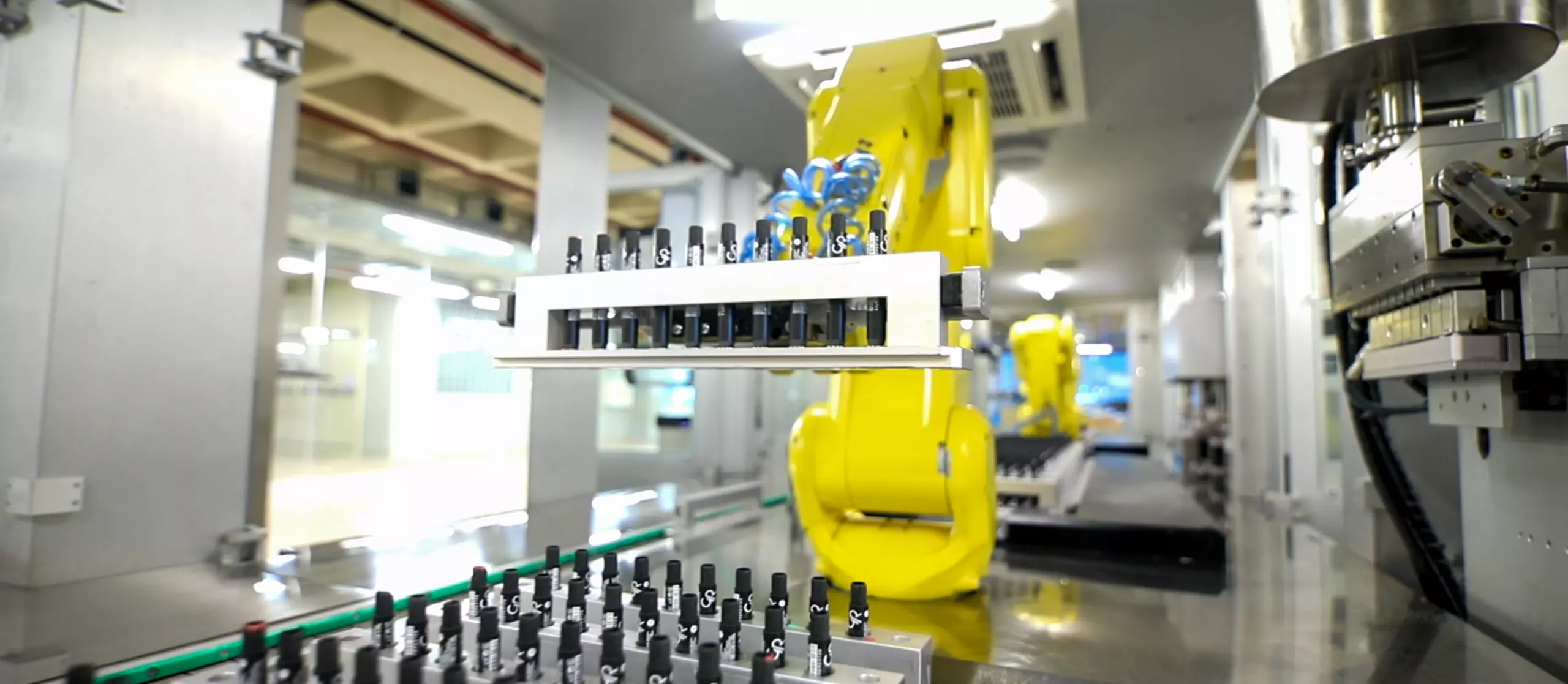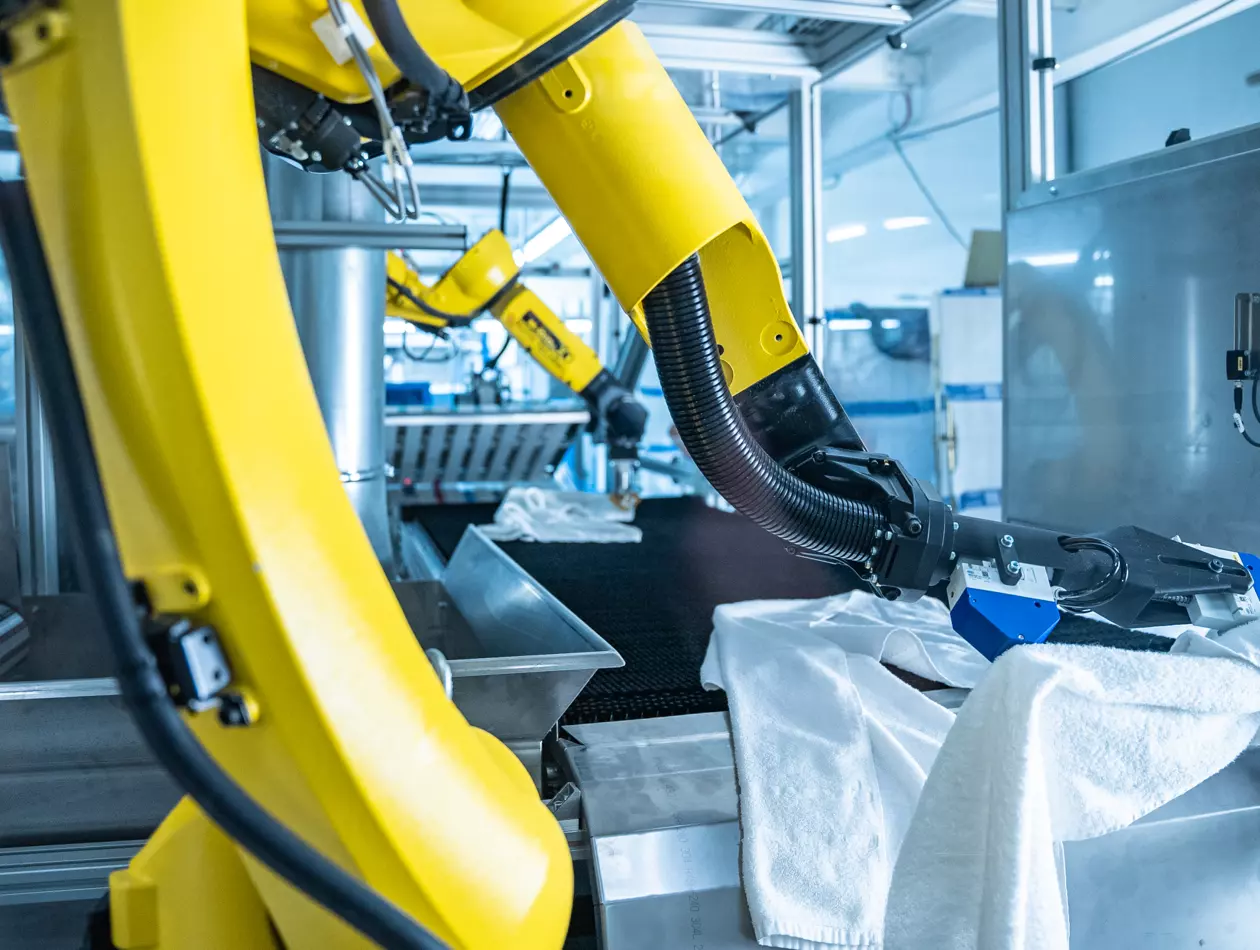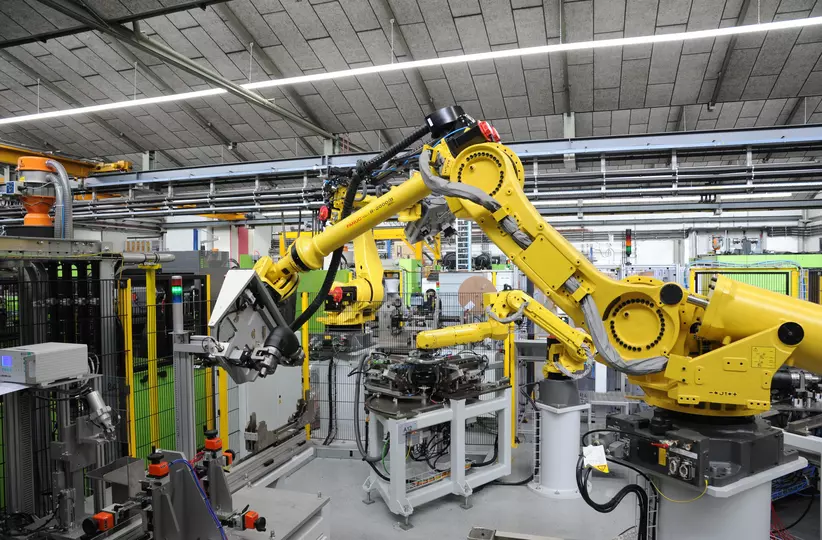
- Europe
- FANUC Europe
- Albania
- Andorra
- Austria
- Belgium
- Bosnia and Herzegowina
- Bulgaria
- Croatia
- Cyprus
- Czech Republic
- Denmark
- Estonia
- Finland
- France
- Germany
- Greece
- Hungary
- Iceland
- Ireland
- Israel
- Italy
- Kosovo
- Latvia
- Liechtenstein
- Lithuania
- Luxembourg
- Malta
- Moldova
- Montenegro
- Netherlands
- North Macedonia
- Norway
- Poland
- Portugal
- Romania
- San Marino
- Serbia
- Slovakia
- Slovenia
- Spain
- Sweden
- Switzerland
- Turkey
- Ukraine
- United Kingdom
- Vatican
- Americas
- USA
- Africa
- Algeria
- Egypt
- Morocco
- Tunisia
- Asia
- Armenia
- Azerbaijan
- Georgia
- Kazakhstan
- Kyrgyzstan
- Tajikstan
- Turkmenistan
- Uzbekistan
GF Wavin
Room for Better Robots
Automation never comes to a standstill. Even when duplicating a production cell, there is room for improvement such as optimised cycle times and reliability.


High process reliability due to service oriented and maintenance-friendly construction of robots.

Flexible cycle times with low failure rate.

Performance increased by 40% since introduction of first robot cell.

R-2000𝑖B/185L robot arm reach of more than 3 metres optimises machine unloading.
Get Inspired

FANUC Case Studies
Explore our comprehensive range of factory automation solutions, showcased in detailed case studies, and designed to optimise and streamline any manufacturing process.

Material Handling
Automise material handling with industrial robots to unlock numerous advantages for your business. Significantly enhance efficiency and productivity by reducing the time and effort required for manual handling. Let robots operate continuously without fatigue to ensure consistent performance and minimise errors, leading to higher throughput and faster processing times.

Machine Tending
Automate machine tending with robots to significantly enhance your production by providing superior accuracy and continuous operation, unlike manual tending. Increase efficiency, achieve consistent output, and reduce labour costs and add substantial value to your entire production process.









